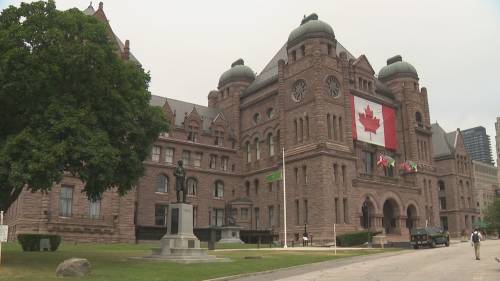In an unprecedented move sending shockwaves through Ontario’s education system, the Ford government has deployed provincial supervisors to take control of the Toronto District School Board (TDSB) and several other school boards, effectively sidelining elected trustees. This dramatic intervention represents the most significant provincial takeover of local education governance in recent memory, raising serious questions about democratic oversight and local representation.
“This is essentially putting the elected voice of communities on mute,” said education advocate Maria Rizzo, former TDSB trustee, who expressed deep concern over the provincial government’s actions. “Trustees are elected by the public to represent their interests in education, and this move effectively silences those voices.”
The supervisors, appointed by Ontario’s Ministry of Education, now hold sweeping authority over budget decisions, policy implementation, and operational oversight—powers previously held by locally elected trustees. According to ministry officials, the intervention comes in response to what they describe as “governance challenges” and “fiscal management concerns” at the affected boards.
Education Minister Stephen Lecce defended the decision during a press conference at Queen’s Park yesterday. “Our government has a responsibility to ensure proper stewardship of education resources and to maintain high standards for student achievement,” Lecce stated. “This temporary measure aims to address persistent challenges that have impacted educational outcomes.”
However, critics from across the political spectrum have condemned the move as an overreach that undermines democratic principles. The Ontario Public School Boards Association expressed “profound disappointment” in a statement released this morning, noting that “local governance through elected representatives has been a cornerstone of Ontario’s education system for generations.”
The timing of the intervention has raised eyebrows among political analysts, coming amid ongoing tensions between the provincial government and education stakeholders over funding formulas, class sizes, and curriculum changes. Recent CO24 reporting has documented increasing friction between the Ford administration and various school boards regarding implementation of provincial directives.
Parents and community members have organized rallies outside TDSB headquarters, with some describing the takeover as “educational gerrymandering” designed to push through unpopular policies without local resistance. Parent advocate Samantha Klein told CO24, “This feels like our community voices are being deliberately silenced at a time when education is facing unprecedented challenges.”
Financial implications of the takeover remain unclear, though business analysts suggest the move could impact everything from procurement practices to property management decisions across the affected boards. The TDSB, Canada’s largest school board, manages an annual budget exceeding $3.4 billion and oversees education for nearly 247,000 students.
Legal experts note the government is acting within its technical authority under the Education Act, which permits provincial intervention under specific circumstances. However, constitutional lawyer Patricia Rodriguez questioned whether the scope of the intervention meets the threshold intended by the legislation. “The Education Act provides for intervention in cases of financial mismanagement or serious governance failures,” Rodriguez explained. “The question is whether current circumstances truly warrant such extraordinary measures.”
The supervisors are expected to remain in place for at least six months, with the potential for extension based on ministry assessment. During this period, elected trustees will continue to hold their titles but will serve in an advisory capacity only, without voting powers or decision-making authority.
As Ontario’s education system navigates this unprecedented shift in governance, the fundamental question remains: In our democratic system, who should ultimately control how our children are educated—locally elected representatives or provincial appointees? The answer may reshape public education governance for generations to come.











